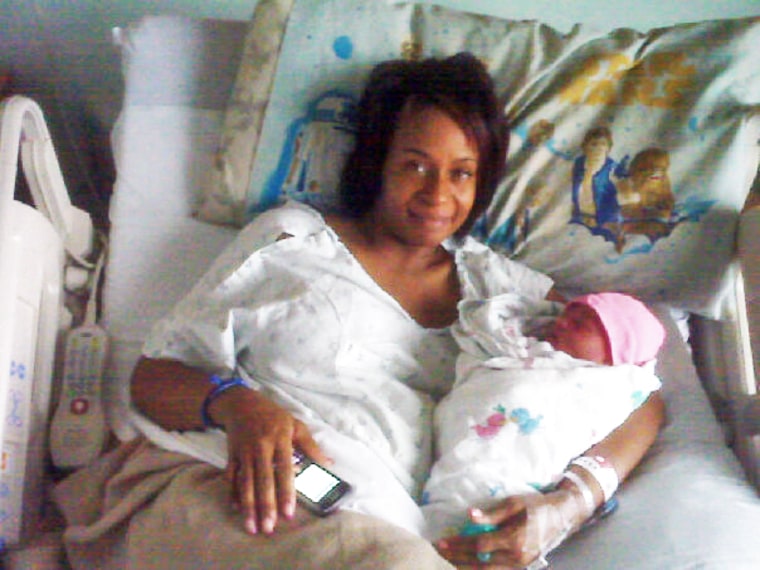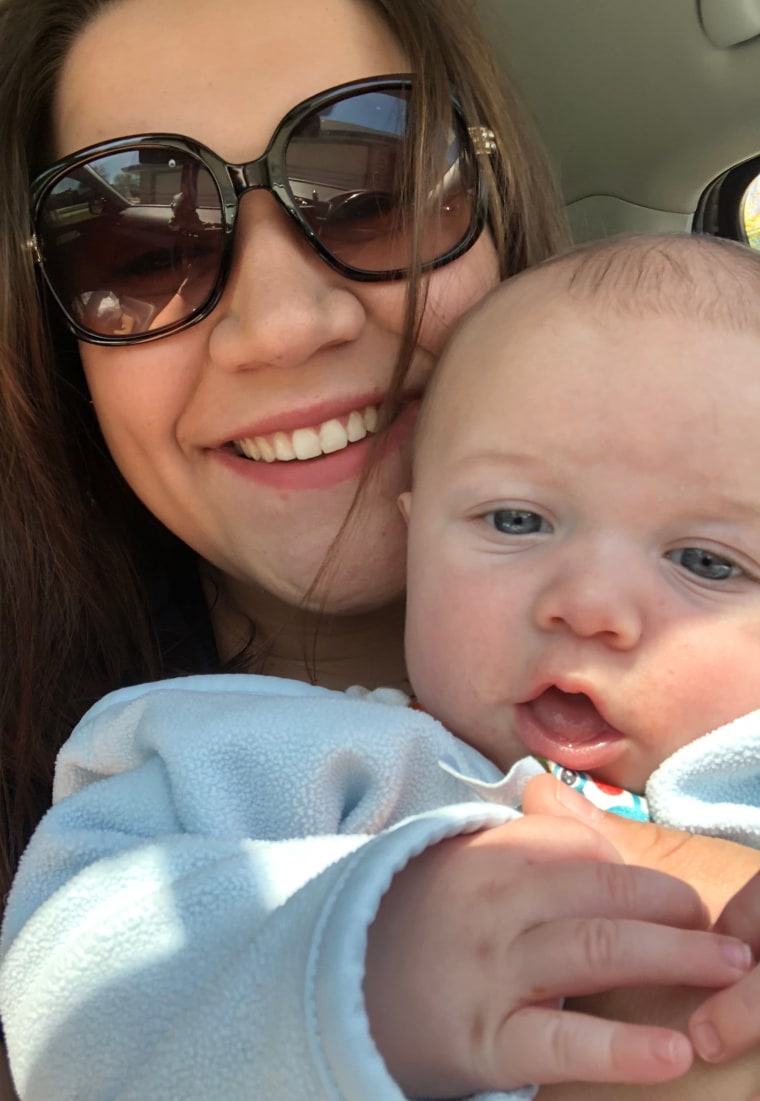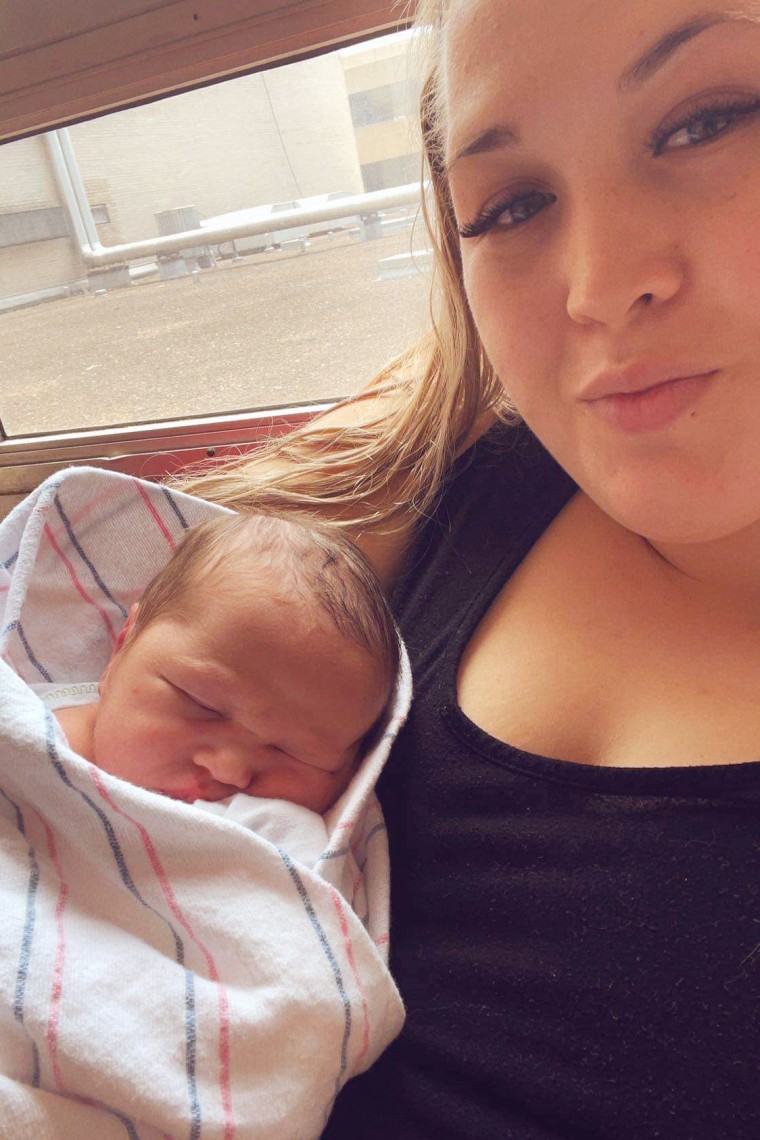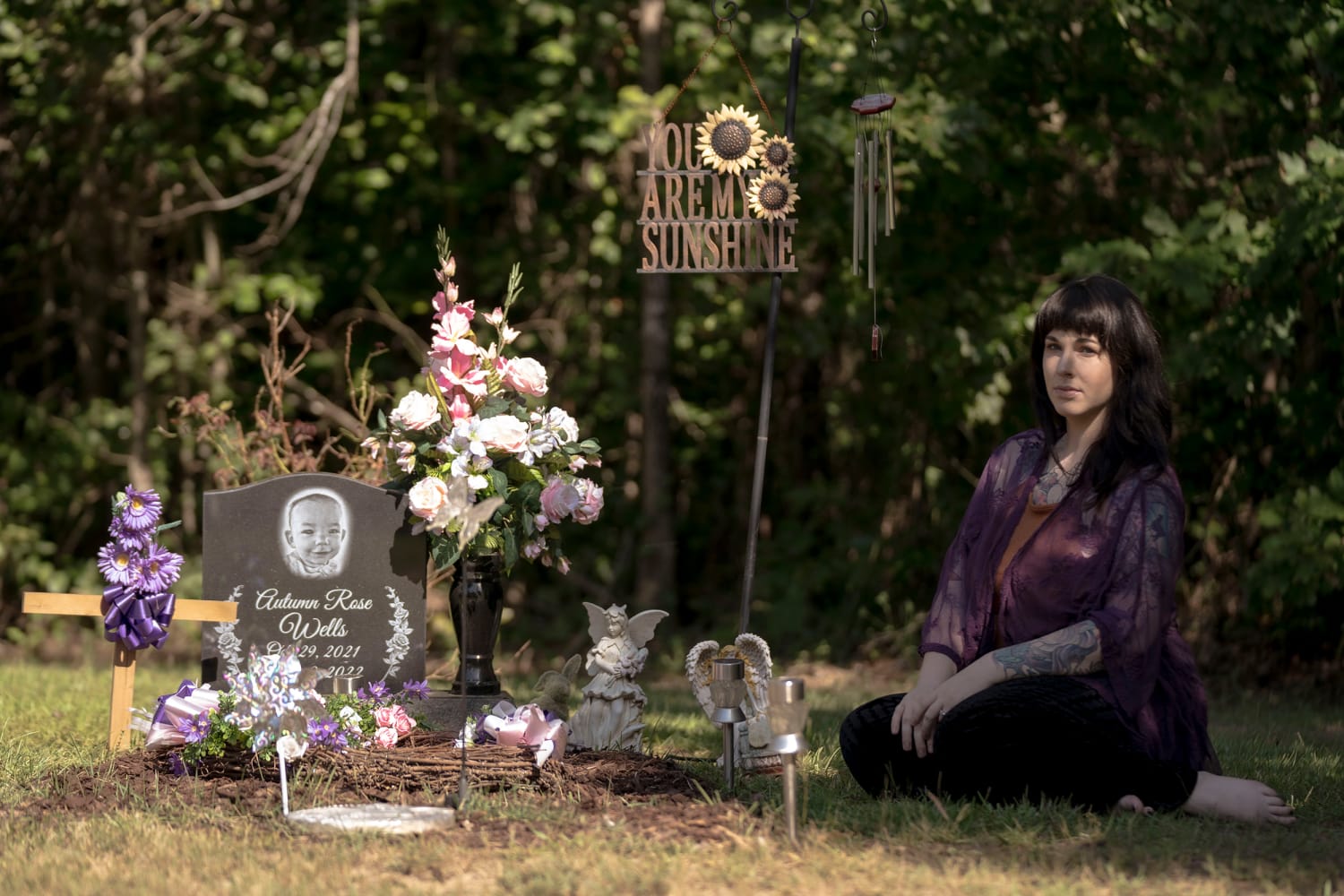NBC News’ count of deaths is based on a range of records, including reports by consumers and local officials reviewed by federal authorities; law enforcement and medical examiners’ reports; and federal data obtained through a Freedom of Information Act request.
The count includes deaths caused by suffocation or restricted airways in incidents involving nursing pillows. In some cases, other causes were listed, such as pneumonia, or the cause of death was undetermined, unexplained or not listed, but a nursing pillow was mentioned as a potential factor. In most cases, the brand of nursing pillow was not specified. (For the full methodology, see below.)
The vast majority of the babies were less than 4 months old; the youngest was just 3 days old.
NBC News’ list is almost certainly an undercount, as autopsy reports do not always include details about specific products and often are not made public. Separately, state officials in Oklahoma and Indiana told NBC News they have tallied dozens of deaths in which nursing pillows were found in infants’ sleep areas, most of which were not included in NBC News’ count because there were not enough details.
Grieving parents said they had no idea the widely used product could be dangerous.
“I never would have brought that damn thing in my house,” said Janea Ivory of Springfield, Ohio, whose 3-month-old daughter, Reagan Merriweather, died napping on a nursing pillow in July 2010. “It looked safe, for heaven’s sake.”

Federal regulators have been aware of the hazard for decades. But it was not until 2020 that the Consumer Product Safety Commission warned consumers that nursing pillows and other similar products “are not designed for sleep and are not safe for sleep.” The agency added that it was investigating fatal incidents but did not say how many.
After years of delays, the CPSC is now preparing to take the first steps toward rules to make nursing pillows safer, with a proposal expected in the coming weeks. Alex Hoehn-Saric, the agency’s chair, recently said at a conference that the CPSC has identified more than 130 deaths associated with nursing pillows over a 10-year period, a figure that does not include some of the deaths on NBC News’ list.
“I’m very concerned, given the large number of deaths,” Hoehn-Saric, who was nominated by President Joe Biden, said in a recent interview. “We need to move forward as quickly as possible.”
But several leading manufacturers of baby products are pushing back against the prospect of new regulation.
The Breastfeeding Infant Development Support Alliance (BFIDSA), which formed last year, is leading a lobbying and PR push whose funders include The Boppy Company and Snuggle Me Organic, two nursing pillow manufacturers. The coalition, which has enlisted support from nonprofit groups, health professionals and small businesses catering to new parents, is framing its effort as a feminist cause.
“Women’s rights are being gutted — and the ability for women and parents to choose how they feed their baby is next on the chopping block,” the alliance says on its website. It warned that federal regulators, who have not yet unveiled their proposal, want to “impose the will of government over the needs of mothers,” requiring such drastic design changes that products would have to be pulled from the market.
That could “have a negative impact on breastfeeding” or prompt some caregivers to turn to makeshift solutions that could be dangerous, the alliance said in a statement to NBC News. “It is imperative to have safe products on the market that properly assist parents in caring for their babies.”
Instead of mandating changes, the CPSC should “invest in an extensive campaign to educate consumers on safe sleep practices” and defer to voluntary safety standards that are currently under development, the group added.
When asked for comment, Boppy said, “As a member of BFIDSA, we support their position and responses to your questions.” Snuggle Me did not respond.
The campaign — which has spent about $150,000 on lobbying since last year, according to estimates in federal disclosures — has infuriated some regulators and safety advocates who accuse manufacturers of undermining efforts to save babies’ lives.
“Any infant death is too many,” said Courtney Griffin, director of consumer product safety for the Consumer Federation of America, a nonprofit advocacy group, “and any number beyond that is outrageous.”
‘It’s not worth an entire life’
Sterling Gerber was just shy of 7 months old when he was found unresponsive after falling asleep on a nursing pillow on the floor of his Oklahoma day care in July 2018, according to a police report obtained through a public records request.
The little boy, described by his mom as “one of the happiest babies,” was rushed to the hospital, where he was put on life support. But doctors told his parents he had been without oxygen too long to recover, said Sterling’s mother, Allison Blackburn. A medical examiner ruled it a “sudden unexplained infant death,” and the day care, which had been cited for multiple violations, shut down shortly afterward. The law firm that represented the day care declined to comment.

Blackburn has since warned as many parents as possible not to buy nursing pillows.
“It’s not worth risking putting your baby in a pillow,” said Blackburn, who now lives in Aurora, Colorado. “It’s not worth an entire life.”
Blackburn has kept mementos of her son’s brief life, including a box of Sterling’s clothes that she’s left untouched the past five years. She has two other boys, ages 3 and 4, who are learning ways to honor their big brother’s memory.
“We do kind of what we call a ‘yes day’ on his passing day, where we go out and do whatever they want,” such as buying toys or eating chicken nuggets for all three meals, Blackburn said. “Anything that they ask, they get — for one day.”
William Allen Cruze Lowe, known as “Cruze,” was 19 days old in June 2021 when his mom propped him up on a nursing pillow to sleep at home in Clinton, Tennessee. He had some sniffles, and his mother said she thought the elevated angle would help him breathe more easily.

In the morning, Cruze’s father, William Lowe, reached for his son’s tiny hand, expecting the baby to make a fist around his finger like he always did. But Cruze didn’t move.
Cruze’s cause of death was acute bronchopneumonia, a medical examiner’s report concluded, adding that the unsafe sleep environment “likely contributed to the demise.”
Lowe still wonders if he could have saved his son.
“If I had woke up 10 minutes earlier, I could have got him,” he said.
Cruze’s mom, Courtney McBride, said that she didn’t know how sick her baby was, or that the pillow could cause him harm. She said that unlike the recalled Fisher-Price Rock ‘n Play sleeper, which has been tied to the deaths of about 100 babies, she had never heard safety concerns related to nursing pillows.
“I never thought it would be anything that could contribute to a life-or-death situation,” she said.
A new product, and new concerns
Nursing pillows are a relatively new innovation — and it took time for them to catch on.
Susan Henderson, a Colorado mother, invented the C-shaped Boppy pillow in 1989, after her daughter’s day care asked parents to bring in pillows that could be used to support babies who couldn’t yet sit on their own.
She said she soon realized that the pillow could be even more useful as a nursing support to reduce mothers’ neck and arm strain as they held and fed their babies. The pillows can position babies more comfortably as they latch onto the breast, which helps with milk production — one of many challenges new moms can face.
During the first few years, Henderson’s company struggled to stay afloat, but the Boppy soon took off. A growing number of Americans were embracing breastfeeding, encouraged by public health campaigns and research showing the benefits for both babies and mothers. By 2006, The Boppy Company had reportedly reached $15 million to $25 million in annual sales; the company was sold two years later. Nursing pillows are now a mainstay of baby registry lists, and Boppy competitors have swarmed the market.
While most nursing pillows have labels warning against using them unsupervised or for sleep, some, including Boppy, have also been labeled or marketed as places for infants to practice tummy time on their stomachs, or as a support for sitting or reclining.
“The Boppy pillow is not limited to breastfeeding; it offers a range of versatile uses,” the company says on its website. Leachco similarly describes its nursing pillow as a “multipurpose” product suitable for supervised tummy time or for lounging while awake.
That might lead caregivers to believe it’s safe to leave their baby unattended in those positions, some safety advocates and medical experts said. But that can quickly turn deadly.
“Absolutely use it to support breastfeeding so you’re comfortable and the baby’s comfortable,” said Dr. Lois Kaye Lee, who chairs the council for injury, violence and poison prevention at the American Academy of Pediatrics. “But after that, put it away.”
Some manufacturers are promoting a similar message: On Amazon, Snuggle Me says its nursing pillows — described as “feeding supports” — should never be used “for propping, sitting up or tummy time.”

Babies are particularly vulnerable to the threat posed by pillows and similar soft objects as they sleep, said Erin Mannen, assistant professor of mechanical and biomedical engineering at Boise State University, who has studied the issue. While adults and older children have an internal arousal response that wakes them up when there’s danger, babies have a less developed response — and don’t have the muscle strength and motor control to get themselves out of an unsafe position on soft cushions, Mannen said.
“Sometimes 15 minutes away from the baby is something that we need for our sanity,” she said. “Unfortunately, even in that short amount of time, some really dangerous and sad situations can occur if babies aren’t in safe products.”
As nursing pillows grew more popular, medical experts and safety regulators were becoming increasingly concerned about the dangers of soft surfaces, bedding and other objects surrounding babies as they slept. In 1992, the CPSC banned beanbag-like infant cushions after dozens of babies died. Four years later, the American Academy of Pediatrics recommended that babies sleep on a firm surface without any soft bedding to reduce the risk of sudden infant death syndrome, in addition to being placed on their backs.
In 2004, federal regulators announced the first — and so far, only — recall of a nursing pillow.
Unlike most nursing pillows, which are stuffed with foam or polyester fiber, the Boston Billow is filled with plastic beads that mold to the shape of a baby’s head and body. In its recall announcement, the CPSC said the product was prohibited under the 1992 ban. The agency did not mention any deaths or injuries in the recall announcement, but warned that infants were at risk of suffocation if “placed on these pillows and left unattended.”
The company fought back, and in 2008, the agency reversed course and ruled that the Billow — and other “substantially similar” nursing pillows — were exempt from the infant cushion ban. The CPSC said at the time that nursing pillows served a useful purpose and that infants were unlikely to suffocate if the pillows were used properly for breastfeeding.
Boston Billows, which continues to sell the same nursing pillow, said it is unaware of any safety incidents involving its products. (NBC News did not identify any deaths associated with the Billow.)
Ken Igoe, the company’s co-founder and CEO, said in an interview the Billow was never designed or marketed to prop up babies and he faulted companies that did so.
“They’re promoting the use of a product in an unsafe way,” he said. “And that may be contributing to these tragic deaths.”
Source: | This article originally belongs to Nbcnews.com










